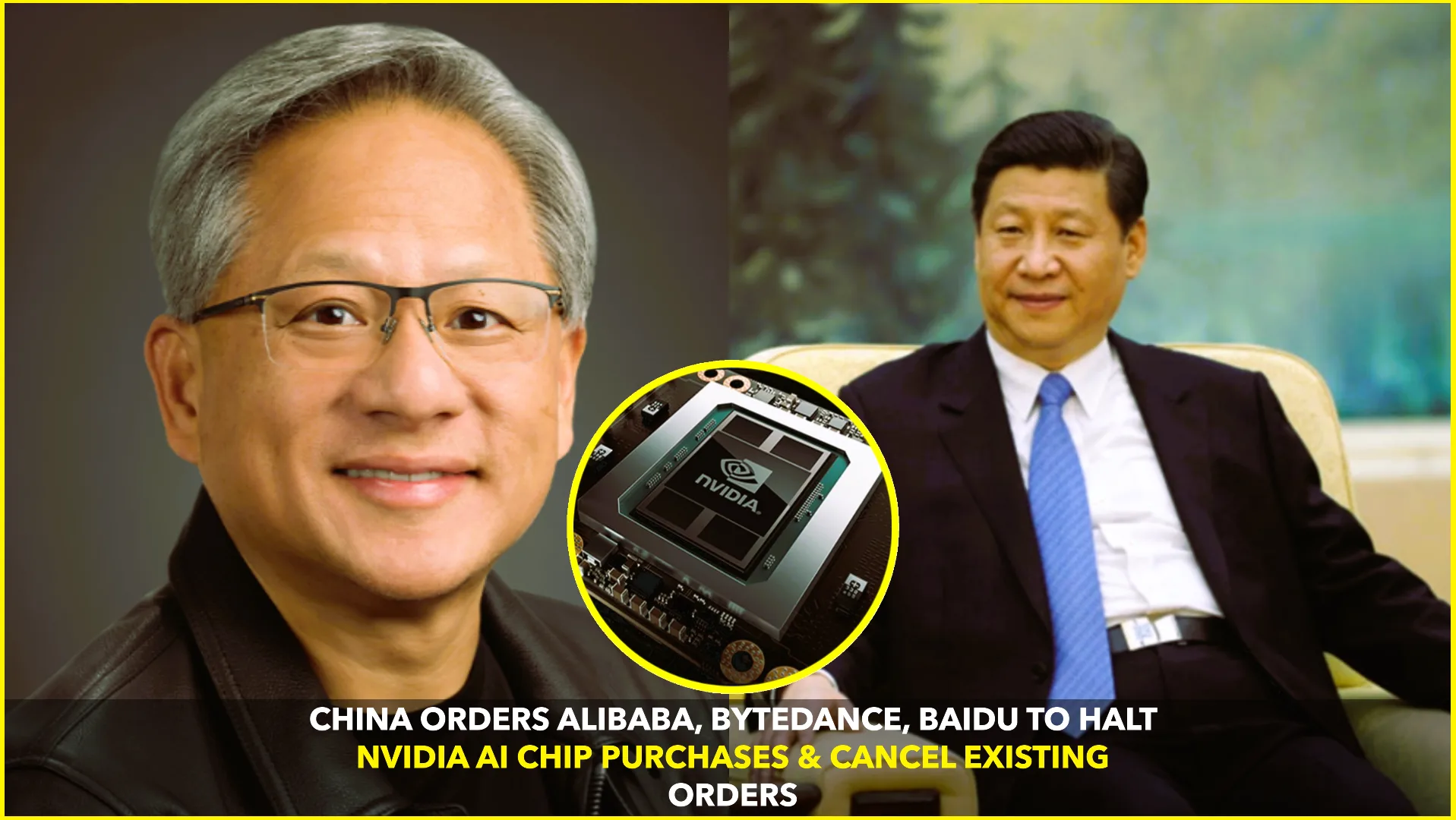China’s central regulator for cyberspace recently issued a sweeping directive ordering major tech companies—among them Alibaba, ByteDance, and Baidu—to cease procurement and testing of certain NVIDIA AI chips and to cancel any existing orders. The move specifically targets NVIDIA models tailored for the Chinese market, including the RTX Pro 6000D and the H20 series. Financial Times+2Bloomberg+2
What the Directive Says
According to multiple media reports, China’s Cyberspace Administration (CAC) has instructed firms to stop all further testing of these chips and terminate pending orders immediately. The ban goes beyond prior warnings about selective models—the CAC’s order covers both still-active procurement and cancellation of earlier agreements. Bloomberg+2Bloomberg+2
Officials supporting the decision argue that Chinese AI chip capabilities have matured to a level that they can rival NVIDIA’s restricted models, making reliance on U.S. suppliers unnecessary. The regulator has also questioned why firms continue to choose foreign chips over domestic ones, emphasizing national security and technological self-sufficiency. Reuters+2Financial Times+2
NVIDIA’s Reaction
For its part, NVIDIA has expressed disappointment. Its CEO, Jensen Huang, said the move is being driven by “larger agendas to work out between China and the United States,” and described the China market as “a bit of a rollercoaster.” Huang added that the company will continue to be patient and supportive if allowed.
This development comes at a difficult moment for NVIDIA’s China business, which accounts for a significant share of its global sales. Reuters+2Financial Times+2 The ban adds pressure on its regional operations and signals a more aggressive posture from Beijing in the ongoing global semiconductor rivalry.
Strategic Motives & Broader Context
Seen in isolation, the ban might appear a hardline regulatory move. In context, it aligns with Beijing’s long-term technology strategy: reduce strategic dependence on U.S. firms, foster a domestic AI hardware ecosystem, and leverage the geopolitical moment as the U.S. imposes its own export restrictions.
In the past months, Chinese authorities have already flagged purchases of NVIDIA’s H20 chips, questioning their security risk and asking firms to justify using foreign over domestic alternatives. Moreover, regulators invited major domestic chip makers—such as Huawei, Cambricon, and Alibaba’s in-house efforts—to compare their offerings against NVIDIA’s restricted models. Financial Times+2Bloomberg+2
This move also occurs as the U.S. tightens export controls in an effort to limit China’s access to cutting-edge chips, especially those useful in AI and military systems. Reuters+3Financial Times+3Bloomberg+3 In turn, China’s decision may further invite countermeasures or retaliatory trade and tech policies from Washington.
Impact and Risks
For NVIDIA
The ban cuts off one of its most growth-promising markets. Already facing a complex regulatory environment in China, this adds a fresh headwind to its revenue outlook. Even projects that were underway or being validated may now be halted. prismmarketview.com+3Financial Times+3Bloomberg+3
For Chinese Tech Firms
Companies like Alibaba and ByteDance will have to turn away from cutting-edge NVIDIA chips and may accelerate internal or partner chip development programs—raising their R&D burden and possibly delaying AI deployment.
For Domestic Chip Industry
This moment offers domestic chip makers a chance to leap further. While many are not yet at NVIDIA’s performance level, the government backing, demand pressure, and restrictive conditions for foreign firms provide room to scale faster. Financial Times+3prismmarketview.com+3Financial Times+3 Firms like Cambricon, Biren, Enflame and others could benefit from redirected investment and priority from state planning. Wikipedia+2Wikipedia+2
Geopolitical Tech Risks
By formally excluding a leading U.S. AI chip provider, China is ushering in a more confrontational phase in the global chip war. Further export controls, sanctions, or barriers may follow on both sides.
Outlook
In public statements, Huang emphasized patience and recognition of geopolitical constraints. Reuters+1 Whether NVIDIA can salvage its China presence depends on evolving trade diplomacy, revisited export licensing regimes, and whether Beijing ever relaxes this ban. Meanwhile, China’s push for tech sovereignty is now more tangible than ever, signaling a new chapter in the race for AI infrastructure supremacy.
Source Highlights:
- China’s Cyberspace Administration ordered tech firms to halt Nvidia chip purchases and cancel orders.
- NVIDIA CEO Jensen Huang acknowledged the political tensions and called them “larger agendas.” Reuters+1
- Reports show China is shifting toward domestic chip manufacturers and pressing justification for foreign chip purchases. prismmarketview.com+2Financial Times+2










